Equipment failures and breakdowns have a high negative impact on a company’s productivity, increasing operating costs. Although it is impossible to eliminate unforeseen events, it is crucial to create preventive maintenance plans, which reduce the probability of problems arising in machines or equipment.
To this end, companies must invest in strategic preventive maintenance leadership to be able to optimize equipment, avoid unexpected stops, eliminate possible risks that jeopardize the physical integrity of workers and maintain the standard of quality and reliability.
As a foremost issue to our customers and one of our interventions’ areas, we present you the benefits of Preventive Maintenance.
What is preventive maintenance?
Preventive maintenance is a set of inspection actions that aim to prevent possible problems in a company’s equipment and machinery, avoiding forced stops. It is a systematic and scheduled maintenance, occurring even if the devices do not show any signs of malfunction.
Therefore, having a well-designed preventive maintenance plan means avoiding any damage to equipment that is crucial to the company’s productivity, which could cause harm and put the safety of employees at risk.
Preventive maintenance involves methodical tasks, such as revisions and possible replacement of pieces, following the manufacturer’s instructions. In this way, it is possible to determine, in advance, which parts are needed to maintain the operational functioning of the industrial machinery in question.
What are the main advantages of preventive maintenance?
The frequent use of industrial equipment leads to the natural wear of parts and components.
To avoid sudden and prolonged stoppages, companies must invest in equipment’s preventive maintenance since costs are considerably lower than corrective maintenance.
Cost containment
Preventive maintenance operations are essential for the proper functioning of infrastructure and responsible for increasing the useful life of equipment, thus avoiding the need to purchase new ones.
An unexpected interruption in the production line entails losses for the business, as a company that is at a standstill is a company that does not profit. The unpredictability of a forced shutdown, due to lack of pieces, specialized technicians, or severe damages that require longer to fix, delays all the processes.
An unexpected failure also means having to pay technicians overtime or overtime for after-hours parts delivery. A preventive maintenance program aims to avoid these problems through planned tasks.
Improved security
Equipment operating in inadequate conditions creates dangerous situations, which can lead to work accidents. Preventive maintenance ensures that the equipment is functional and, therefore, safe for company employees.
More efficiency
Preventive maintenance includes periodic inspections, oil and other fluid changes, parts replacements, among others. These actions will allow the equipment to work more efficiently, resulting in the optimization of processes.
Reduced equipment downtime
Although almost all maintenance tasks require some downtime, preventive maintenance can shorten this downtime, especially when compared to corrective maintenance action. In addition, it is possible to schedule maintenance tasks at the most convenient times that do not affect the production process, saving service time.
Brand reputation
A company at a standstill cannot meet deadlines. Having functional equipment allows you to satisfy your customers’ requests within the allotted time, boosting the brand’s reputation.
Meivcore is responsible for providing technical and specialized support for the execution of preventive or corrective interventions. Its highly trained maintenance team ensures that inspection operations are carried out on time and bring you benefits, such as saving resources, increasing productivity, and equipment profitability.
Whenever possible, corrective maintenance has to be avoided and replaced by preventive maintenance policies. However, if unviable, Meivcore will provide you with corrective maintenance so that you may continue to operate rapidly.


 Português
Português Español
Español Français
Français